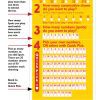Picture this: the thrill of the cards, the tension in the air, and the chance to make a living doing what you love. That’s the dream for many poker players out there. But can you really turn your passion for poker into a steady income? In this article, we’re going to explore the exciting world of professional poker and answer the question: can you make a living playing poker?
It’s no secret that poker has been a popular game for centuries, captivating players from all walks of life. But what if I told you that playing poker could be more than just a hobby or a way to pass the time? Believe it or not, there are individuals out there who have turned their love for the game into a full-time profession. They’ve mastered the art of poker and found a way to make a living from it.
Now, you might be thinking, “Is this even possible? Can poker really provide a reliable source of income?” Well, my eager friend, the answer is not as straightforward as a simple yes or no. The reality is that making a living playing poker requires a combination of skill, discipline, and a bit of luck. It’s a thrilling journey that requires dedication, perseverance, and a deep understanding of the game. So, let’s delve deeper into the world of professional poker and find out if it’s a viable career path for you.
Are you wondering if it’s possible to make a living playing poker? While it is theoretically possible, it requires a unique set of skills, discipline, and a lot of practice. Successful professional poker players possess excellent decision-making abilities, emotional control, and a deep understanding of the game. Additionally, they take calculated risks and manage their bankroll effectively. If you’re passionate and willing to put in the effort, you can potentially make a living playing poker, but it’s important to know that it’s a challenging journey.

Can You Make a Living Playing Poker? Insights and Tips
Can you turn your love for poker into a full-time profession? Many people wonder if it’s possible to make a living playing poker. In this article, we will explore the opportunities, challenges, and strategies involved in pursuing a career as a professional poker player. Whether you’re an aspiring pro or simply curious about the lifestyle, this comprehensive guide will provide you with valuable insights, tips, and information to help you navigate the world of professional poker.
The Reality of Playing Poker Professionally
Playing poker professionally may seem like a dream come true – the allure of financial independence, the freedom to set your schedule, and the excitement of the game. However, it’s important to understand the realities before jumping in. Here are three key factors to consider:
1. Skill and Expertise
To make a living playing poker, you must have exceptional skill and expertise. It’s not enough to rely on luck or intuition – professional poker players dedicate countless hours to studying the game, honing their skills, and analyzing strategies. They understand the importance of mathematics, psychology, and pattern recognition to gain an edge over their opponents. Developing and maintaining the necessary skills is crucial for long-term success.
Additionally, professional players have a thorough understanding of various poker formats, including cash games, tournaments, and online play. They adapt their strategies to different environments and opponents, ensuring they are well-rounded and capable of maximizing their profits.
2. Bankroll Management
Managing your bankroll effectively is another critical aspect of making a living playing poker. While it’s possible to have winning sessions, professional players understand that there will also be periods of losing streaks. Ensuring you have a sufficient bankroll to weather these downswings and continue playing is essential.
Expert poker players also adhere to a disciplined approach, setting limits on their stakes and buy-ins to minimize risk. They understand the concept of variance and tailor their bankroll management strategy accordingly. Proper bankroll management ensures long-term sustainability and minimizes the impact of short-term fluctuations.
3. Mental and Emotional Fortitude
The mental and emotional demands of professional poker cannot be understated. Playing for a living requires discipline, focus, and resilience. Ups and downs are part of the game, and professional players must navigate through them without letting emotions cloud their judgment.
Managing tilt – the emotional response to losses or bad luck – is essential for staying in control and making rational decisions. Building a strong mental game is just as important as developing technical skills. Professional players often engage in practices such as meditation, visualization, and psychological exercises to strengthen their mental resilience and maintain a healthy mindset.
Is Professional Poker Right for You? Assessing the Pros and Cons
Before embarking on a career in professional poker, it’s essential to do a thorough assessment of the pros and cons. While the allure of the lifestyle may be tempting, it’s crucial to have a realistic understanding of the challenges and potential drawbacks. Here are three pros and cons to consider:
The Pros:
- Financial Independence: Successful professional poker players enjoy the freedom of earning a significant income without being tied to a traditional job.
- Flexible Schedule: Playing poker professionally allows you to set your own hours and work from anywhere in the world with an internet connection.
- Excitement and Competition: Poker offers a thrilling and competitive environment, giving you the opportunity to challenge yourself and improve continuously.
The Cons:
- Financial Risk: Professional poker is not without its financial risks. The potential for significant swings and losses requires careful bankroll management and the ability to handle financial uncertainty.
- Isolation and Loneliness: Playing poker professionally often involves long hours of grinding away behind a screen or in a casino. This lifestyle can lead to feelings of isolation and loneliness.
- Unpredictable Income: Unlike a steady paycheck, the income of a professional poker player can be highly unpredictable. It requires budgeting and financial planning to ensure stability during lean periods.
Tips for Aspiring Professional Poker Players
If you’re serious about pursuing a career as a professional poker player, here are some valuable tips to guide you:
1. Start Small and Build Your Skills
Begin your journey by playing low-stakes games and gradually move up as you develop your skills and confidence. Starting small allows you to learn the intricacies of the game without risking a significant amount of money.
Take advantage of free resources, such as online tutorials and forums, to enhance your knowledge. Surround yourself with like-minded individuals who share your passion for poker, and learn from their experiences.
Remember, becoming a professional poker player is a long-term commitment that requires continuous improvement and learning.
2. Develop a Solid Bankroll Management Strategy
One of the most crucial aspects of professional poker is managing your bankroll effectively. Determine your risk tolerance and set clear boundaries for the stakes you’re willing to play.
Consistently track your results and adjust your bankroll management strategy accordingly. Stay disciplined and resist the temptation to play outside of your bankroll – even when experiencing winning streaks.
3. Invest in Your Mental and Emotional Well-being
Poker is a mentally and emotionally demanding game. Develop strategies to manage stress and handle the emotional rollercoaster that comes with the territory.
Practice mindfulness techniques, engage in regular physical exercise, and maintain a healthy work-life balance. Taking care of your mental and emotional well-being will contribute to better decision-making and overall success in the game.
The Future of Professional Poker
The world of poker continues to evolve, and the future of professional poker holds exciting possibilities. Online platforms have made the game more accessible than ever before, with players from around the globe competing for huge prize pools.
Additionally, advancements in technology, such as virtual reality and artificial intelligence, are shaping the way poker is played. With these innovations, the professional poker landscape is bound to change, offering new opportunities and challenges for aspiring players.
As you embark on your journey to becoming a professional poker player, stay adaptable and open to new strategies and developments in the game. Continuously learn, improve, and evolve with the ever-changing poker landscape.
In conclusion, making a living playing poker is possible for those who possess the necessary skills, discipline, and resilience. While the road to becoming a professional poker player is challenging, the rewards can be substantial. Assess your skills and mindset, weigh the pros and cons, and if you’re willing to put in the work, follow your passion and pursue a career in professional poker.
Key Takeaways – Can You Make a Living Playing Poker?
- While it is possible to make a living playing poker, it requires a high level of skill, dedication, and discipline.
- Becoming a professional poker player takes time and effort, as you need to study the game, analyze strategies, and constantly improve your skills.
- You need to have a solid bankroll management plan to handle the inevitable ups and downs of poker, as it can be a volatile game.
- It is important to develop a network of fellow poker players and participate in poker communities to gain insights and share experiences.
- Poker is a mentally challenging game, so it’s crucial to maintain a healthy mindset, practice good decision-making, and avoid emotional tilt.
Frequently Asked Questions
In the world of professional poker, many aspire to make a living from playing the game. If you’re wondering whether it’s possible to turn your love for poker into a full-time career, we’ve got answers for you. Here are some frequently asked questions about making a living playing poker.
Q1: What skills are necessary to make a living playing poker?
While luck certainly plays a role in poker, it’s not the sole factor that determines success in the game. To make a living playing poker, you’ll need a combination of skill, knowledge, and discipline. This includes understanding the math behind the game, strategic thinking, emotional control, and the ability to read opponents. These skills can be developed over time through practice, study, and learning from experienced players.
It’s also important to have a good understanding of bankroll management, knowing when to take calculated risks, and recognizing the right opportunities. These skills, when honed and used effectively, can increase your chances of sustaining a profitable poker career.
Q2: Is it possible to consistently earn a living by playing poker?
Yes, it is possible to consistently earn a living by playing poker, but it requires dedication, hard work, and a deep understanding of the game. Professional poker players treat the game as their profession, putting in hours of study and practice to improve their skills. They constantly analyze their own gameplay, study their opponents, and adapt their strategies accordingly.
However, it’s important to note that poker is a high variance game, meaning that short-term swings in luck can have a significant impact on your earnings. Even skilled players can experience losing streaks due to bad luck or being outplayed. To counter this, professional players have a bankroll management strategy in place that allows them to withstand these swings and continue playing over the long term.
Q3: How do professional poker players manage their finances?
Professional poker players understand the importance of effective bankroll management. They separate their poker bankroll from their personal finances and establish strict guidelines for how much they can risk in any given session or tournament. This helps them avoid going broke and enables them to continue playing even during periods of bad luck.
They also have a safety net in place, ensuring they have enough money set aside for living expenses and emergencies. This financial responsibility allows them to approach the game with a clear mind, without the pressure of needing immediate success to cover their bills. A proper financial plan and discipline are vital for any professional poker player looking to sustain their career.
Q4: What are the potential downsides of making a living playing poker?
Making a living playing poker can be both rewarding and challenging. One of the potential downsides is the inherent variance in the game. Even the best players can experience losing streaks that may last for weeks or even months. It requires mental strength and resilience to navigate these tough periods and stay motivated.
Another downside is the lack of stability. Poker income can fluctuate greatly from month to month, making it difficult to predict and plan for the future. This can make it challenging to secure loans, mortgages, or other types of financial stability that traditional careers may offer. Additionally, the nature of the game may not provide access to company benefits like health insurance or retirement plans, so it’s important to consider alternative ways to secure these financial safeguards.
Q5: What steps can I take to transition from recreational player to professional player?
If you’re considering transitioning from being a recreational player to a professional poker player, there are several steps you can take. First and foremost, invest time in honing your skills and knowledge of the game. Study poker strategy books, watch educational videos, and seek guidance from experienced players who can help mentor you.
Next, build a solid bankroll by starting with a comfortable amount of money that you can afford to lose. Allow yourself time to adjust to the demands of professional play, and gradually increase your stakes as you gain confidence and experience.
Finally, maintain a disciplined approach to both your gameplay and your finances. Keep accurate records of your wins and losses, and regularly evaluate your performance. Develop a network of fellow players who can provide support and advice, and always be open to learning and improving your skills. With dedication and a strategic mindset, you can increase your chances of making a successful transition to becoming a professional poker player.
Can You Make a Living Playing Online Poker In 2023? – Brutal Truth ♠️
Summary
Playing poker for a living can be tough and risky. It requires a lot of skill, discipline, and dedication. Although some people have been successful at it, many poker players struggle to make a consistent income. It’s important to understand the challenges and potential downsides before pursuing poker as a career.
While it may seem glamorous and exciting, the reality is that most professional poker players face financial fluctuations and the pressure to constantly improve their game. It’s not as easy as it looks on TV. It’s crucial to have a backup plan and not solely rely on poker for income. So, if you’re thinking about making a living playing poker, make sure you have the skills, mindset, and financial stability to handle the ups and downs of the game.









